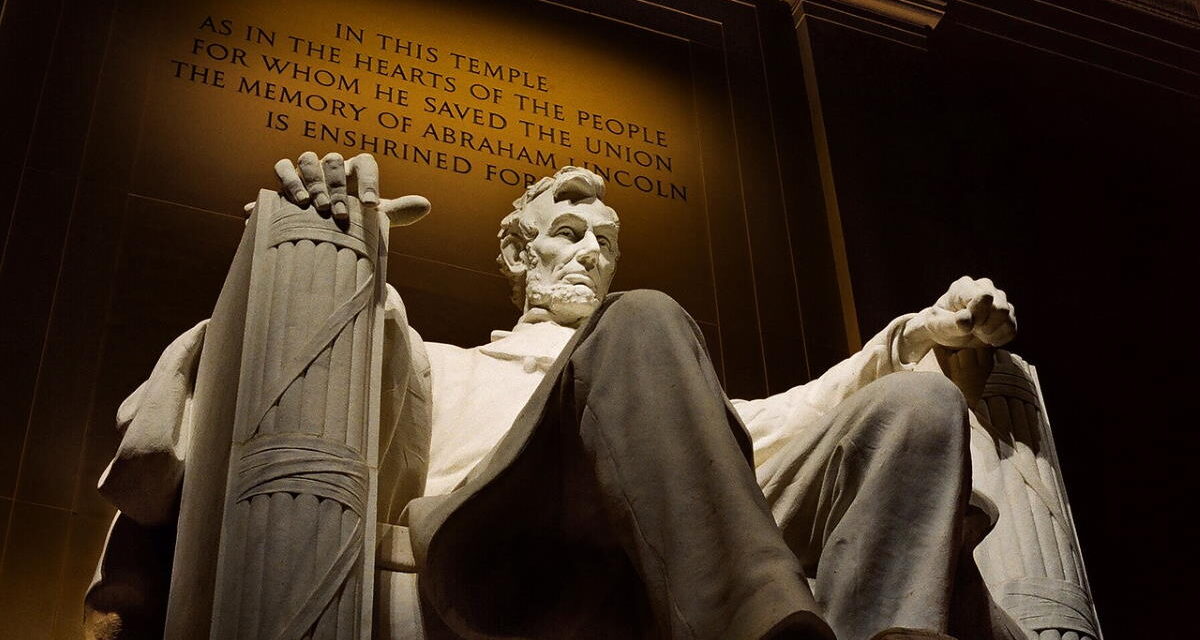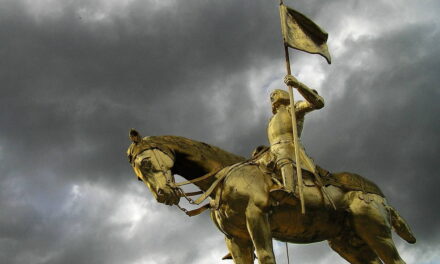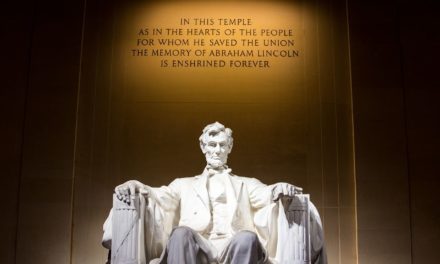Warming Up!
Chit-Chat
1. Discuss the following with your classmates.
(a) What are the important games played in your school?
Ans: The important games played in my school are:
• Cricket
• Football
• Badminton
• Table Tennis
(b) Who are the captains of the various team-games? Name them.
You can take any names here. Example:
Captain of cricket team: Manoj Yadav
Captain of football team: Gayatri Mandal
(c) What is the role played by a team – games captain ? What are his/her responsibilities?
Ans: The captain of a team plays multiple roles, all of which are extremely important. Firstly, the captain has to be part of planning the strategy the team will utilize during each game. He or she has to understand the strengths and weaknesses of each player and accordingly decide when or which position they get to play. The captain must be responsible for all on-field decisions.
Secondly, the captain has to be a good leader and show player management skills. This is a crucial aspect of being a captain which is often ignored. The captain should be able to inspire his or her players to perform at their best. He or she must also be able to talk to the players about their performance and what is expected of them. A captain has to be firm but respectful of the team’s players.
(d) What is the role of a Captain of a ship? What are the responsibilities of a Captain of a ship?
Ans: The primary role of the captain of a ship is to ensure that the ship and its crew members are managed effectively. The captain needs to ensure that the ship reaches its destination on time and carries out its function in the most efficient manner as possible.
Responsibilities of the captain of a ship are as follows:
• Ensure the ship reaches its destination on time and in a proper manner.
• Manage all crew members and ensure each member is doing their job efficiently.
• Handle any onboard issues whether with the ship itself or the crew members.
• Communicate with port staff or other authorities regarding safe passage of the ship.
• Ensure all aboard the ship are well taken care of. In case of emergency, the captain needs to remain on the ship till the end and cannot leave before anyone else.
1. In pairs find as many meaningful words as you can from the following grid within five minutes. You can find words horizontally and vertically. (Hint- The words are related to battles or battle – ships. For example, soldier)
Ans: Direct answers are given below
1) Soldier
2) Steer
3) Map
4) Cruise
5) Battle
6) Anchor
7) Funeral
8) Sailor
9) Victory
10) Brave
11) Navigation
12) Salute
13) Compass
14) Board
15) Alight
16) Martyr
From the chapter pages
Questions on O Captain! My Captain!
1) What is the location of the battle ship?
Ans: The location of the battle ship is near the port, anchored safe and sound.
2) How are the people waiting to welcome the captain of the ship?
Ans: The people are waiting with bouquets and ribboned wreaths to welcome the captain of the ship. The people have crowded on the shores with flags and bugles in honour of the captain.
3) Why is the speaker filled with grief?
Ans: The speaker is filled with grief because even though the nation is celebrating the victory of the battle, his captain is now dead and will not be part of the people’s celebration. He mourns the loss of his great leader who battled till the end to ensure victory. However, now the captain himself will not be able to enjoy the victory while others celebrate.
4) In what state does the captain lie on the deck?
Ans: The captain lies fallen, cold and dead on the deck.
English Workshop
1. Pick out from the poem all words related to ‘Ship’. Make a list of them in a Word Register.
Ans:
a) Port
b) Vessel
c) Deck
d) Voyage
e) Trip
f) Captain
g) Anchored
h) Shores
2. Read the poem again and complete the following sentences.
(a) The Captain lies on the deck fallen cold and dead.
(b) The Captain doesn’t answer as his lips are pale and still.
(c) Captain does not feel anything he has no pulse nor will.
(d) The bugle and flag are trilling and flung.
3. The poem has a direct reference to the assasination of President Abraham Lincoln on 15th April, 1865, after the Civil War was won. Match the symbols/images in Column A with what they refer to, in Column B.
Ans: Direct Answers Given
- the ship – (c) United States of America
- the fearful trip/voyage – (e) the deathly Civil War
- the port – (a) victory in the war
- the bells ringing – (f) celebrating victory
- Captain – (b) the President of USA
- anchored safe – (g) peace after winning the war
- no pulse, nor will – (d) lifeless/dead
4. (A) The Figure of Speech ‘ Apostrophe’ exists throughout the poem. Pick out lines where the poet directly addresses.
(a) the dead Captain
1) O Captain! My Captain! our fearful trip is done;
2) O Captain! My Captain! rise up and hear the bells;
(b) the grief in his heart
1) But O heart! heart! heart!
2) O the bleeding drops of red
(c) the sea-shore
1) The port is near, the bells I hear, the people all exulting
2) Exult, O shores, and ring, O bells!
(B) Find from the poem, one example of each of the following.
(a) Personification
Ans: While follow eyes the steady keel, the vessel grim and daring:
(b) Alliteration
Ans: The port is near, the bells I hear, the people all exulting
(c) Repetition
Ans: But O heart! heart! heart!
(d) Exclamation
Ans: But O heart! heart! heart!
(e) Tautology
Ans: Here Captain! dear father!
(f) Antithesis
Ans: While follow eyes the steady keel, the vessel grim and daring:
5. Find and answer in your own words.
(a) What are the signs of the people celebrating victory?
Ans: The signs that the people are celebrating victory are as follows:
1) The people have all gathered on the shores and are cheering with joy and eagerness.
2) The bells are all ringing.
3) The people are exulting.
4) The flags have been flung.
5) The bugles have been trilling.
6) People are waiting with bouquets and ribboned wreathes.
(b) The crowds on the shore are eagerly waiting to felicitate the Captain. How?
Ans: The crowds on the shore are eagerly waiting to felicitate the captain with bouquets and ribboned wreathes. They all call for the captain and have flung flags and are playing the bugle.
(c) What are the signs that the Captain has passed away?
Ans: The signs that the Captain has passed away are as follows:
1) The captain’s lips are pale and still.
2) He does not move his arm and does not have a pulse.
3) He lies fallen on the deck, cold and dead.
(d) ‘…..dear father ! This arm beneath your head…’
Why do you think the speaker in the poem puts his arm under the Captain’s head?
Ans: The speaker in the poem puts his arms under the Captain’s head as initially he wants to support his captain and help him get up. He wants him to see how all the people are calling his name and waiting to felicitate him after victory in the long war. However, he also puts his arms under the Captain’s head as he realize he is no more and the speaker is then filled with grief. He feels as if he is dreaming. He so desperately wanted his captain to be part of the celebration. After all, it was because of the captain that the battle was won.
(e) Describe the grief that the speaker in the poem feels at the death of his Captain.
Ans: The speaker in the poem is overcome by grief at the death of his captain. His heart beats and bleeds for his captain as he see’s him lie on the deck, cold and dead. He mourns for his captain and feels as if he is dreaming that his captain is no more. He keeps asking for his captain to rise and witness how everyone is cheering for him. The speaker is absolutely heart-broken that while the nation celebrates the victory in the battle, his captain and great leader has passed away and will not be part of all the celebration.
6. Glance through the poem again to find who the speaker addresses in the first two stanzas and the last stanza.
Ans: In the poem, during the first two stanzas, the speaker addresses his captain. He desperately wants his captain to rise up and witness how people are celebrating the victory in the battle and how they are waiting to felicitate the captain.
In the third stanza, as the speaker realizes the captain is dead, he speaks about his own grief. He is not just addressing himself, trying to cope with the death of his great leader but he is also addressing everyone else to let them know that the great captain has passed away.
7. Fill the qualities in the diagram given below.
Direct answers given
Qualities of a Ship’s Captain
• naval expert
• knowledge of weather signs
Common Qualities
• courage
• integrity
• visionary
• confidence
• self-disciplined
• leadership
• foresight
• positive attitude
• role-model
• selfless service
• good administrator
Qualities of a Nation’s Leader
• humane
• sympathetic
8. Complete the following choosing from the alternatives.
(a) The rhyme – scheme of the poem is aabbcded.
(aabbccdd / abcbdede / aabbcded)
(b) The line repeated in every stanza Fallen cold and dead.
(O Captain ! My Captain / Fallen cold and dead)
(c) The steady rhythm in the poem consists of a pattern of five beats.
(Three/Four/Five)
(d) In the third stanza the speaker does not address the captain.
(First/Second/Third)
(e) The type of poem is elegy because it is composed in memory of a passed away personality.
(sonnet, lyric, elegy)
9. The feeling of grief and pain of the speaker in this poem are comparable to those of a great Maratha leader, inspite of winning the battle at a fort in Maharashtra. Guess who the great Maratha leader was and the Captain who was killed in the battle. Write down other basic historical facts of the above.
Ans: The great Maratha leader and captain who was killed inspite winning the battle just like the captain in the poem was Tanaji Malusare.
Some facts about the historic battle are as follows:
1) The battle was known as the great Battle of Sinhagad fort and it took place in the year 1670.
2) Tanaji Malusare was not just the Subedar in the army but also a friend of the great Chhatrapati Shivaji Maharaj.
3) Tanaji Malusare was badly wounded during the battle of Sinhagad fort which led to his demise.
4) The battle was fought between the Maratha warriors and Mughal army.
5) In fact, just preceding the battle, Tanaji Malusare was busy with the preparations of his son’s marriage.
6) Tanaji Malusare was heavily injured by the Mughal army commander Udaybhan Rathore.
7) It was Chhatrapati Shivaji Maharaj who had given the order to attack Sinhagad fort to take it back from the Mughals in 1670.
8) Tanaji Malusare had to climb the fort silently using ropes in bad weather to launch the surprise attack. However, there were only 300 warriors with Tanaji Malusare while the Sinhagad fort was being guarded by approximately 5000 Mughal soldiers.
9) Even with the odds against him, Tanaji Malusare successfully managed to win the battle of Sinhagad fort with the help of his uncle Shelar.
10) Even today, there is a memorial dedicated to the great Maratha leader Tanaji Malusare at the Sinhagad fort.
10. The poem describes the sad demise of the Captain. How would you console the son of the Captain ? Write a short paragraph using the points given below.
(a) Expressing grief on the death.
(b) An act of God.
(c) Words / sentences giving strengths and courage to face the situation.
(d) Add your own points.
Ans: I am so sorry for your loss. I cannot imagine what it must be like for you to lose your father. He was our leader, captain and guide. Our hearts are filled with grief to know that he is no longer with us today.
Unfortunately we have to bend to God’s will and trust God’s plans for us. I know wherever the captain may be today, he will look down from the heavens and always be by our side. He will be proud of our achievement and will always wish the best for us. I know he was so proud of his family as well and loved you so much. While we all admired him, he admired you, his son.
You may feel alone today without your father but know that he knew in his heart that his son would do well and be a well-respected person some day. Of course, you are not alone. You have all of us with you. We are in this together and our bond shall never break. Your father’s courage helped all of us to end this war and live a life with hope and dignity. Now it is your turn to be courageous and let your father live through you.
Remember, we are with you. While we mourn the loss of our great leader, we are also immensely proud of what he helped us achieve. We shall not let him down and I know neither shall you. I see the same spark in your eyes as your father and you are most definitely your father’s son. I know whatever you set out to do in your life, you will do well and lead a life that would make your father proud.
11. Read the poem. Write an appreciation of the poem in about 12 to 15 sentences. (Refer to page no. 5)
Ans: Please click on the link for the full appreciation of the poem O Captain! My Captain!





